Beyond Academics: Holistic Education for Young Minds
In today’s dynamic world, education must go beyond academics to include values, emotional well-being, technology skills, and creativity. Introducing these elements from early childhood to Primary ensures children grow into confident, well-rounded individuals ready to face life’s challenges.
The Importance of Values Education
Values are the foundation for ethical decision-making and understanding right from wrong. Instilled early, they form lifelong habits that shape character. For instance, teaching empathy fosters compassion and care, while promoting responsibility and positive relationships. Values education builds a sense of belonging, helping children grow into conscientious members of society.
Emotional Intelligence and Balance
Emotional intelligence equips children to manage emotions, handle stress, and form meaningful relationships. Teaching emotional balance from a young age provides skills to navigate life’s ups and downs effectively.
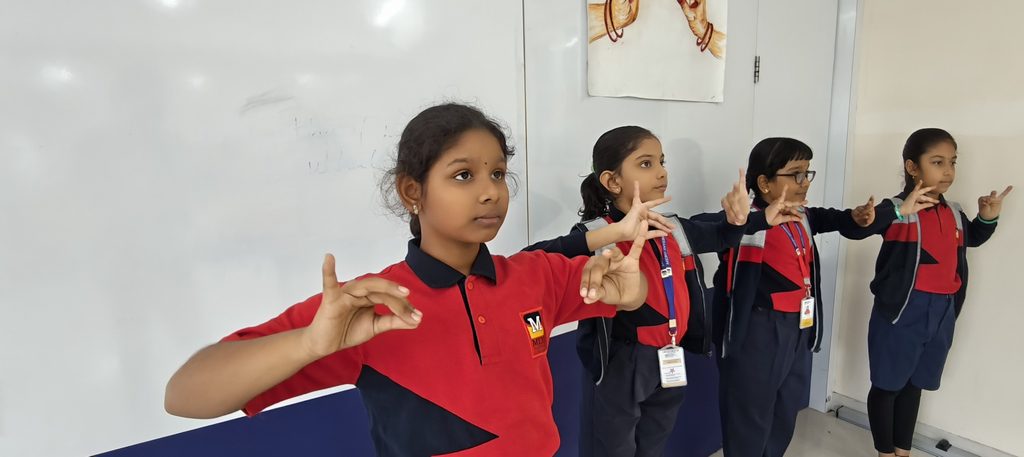
EmotionsInteractive methods like Holding mudras from Yoga and Natya shastra, storytelling, games, and role-play help younger children recognize and express emotions. Simple activities where students can express themselves such as drawing happy or sad faces make learning engaging.
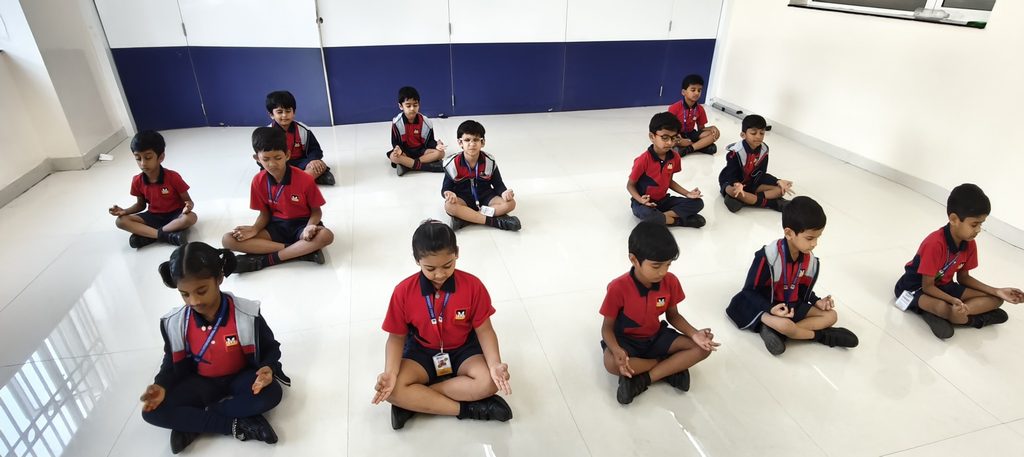
Older children (grades 3–5) benefit from mindfulness, deep breathing, journaling, and problem-solving techniques to manage stress. Role-playing social scenarios can build communication and empathy.
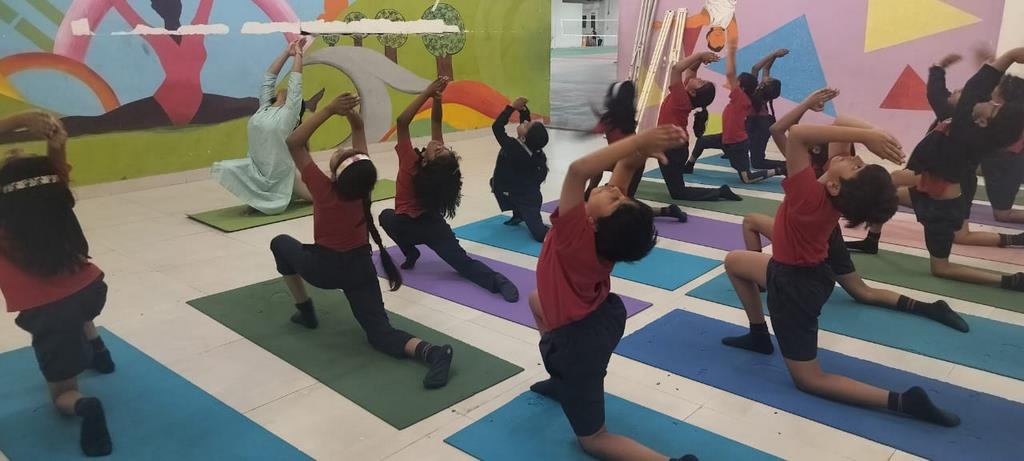
Adults, including teachers and parents, play a key role by demonstrating emotional resilience and calmness during challenges, setting a powerful example for children to follow.
Technology Skills for the Future
In today’s digital age, teaching children responsible technology use ensures they become ethical digital citizens.
- Building Digital Literacy
For younger children, educational apps and games make learning fun. Older children can develop essential skills like typing, coding, and safe internet navigation. - Online Safety
Teaching online privacy, the risks of cyberbullying, and managing screen time helps children use technology wisely. - Reinforcing Values with Technology
Digital projects on kindness, teamwork, or environmental conservation blend tech skills with important life lessons, emphasizing the ethical use of technology.
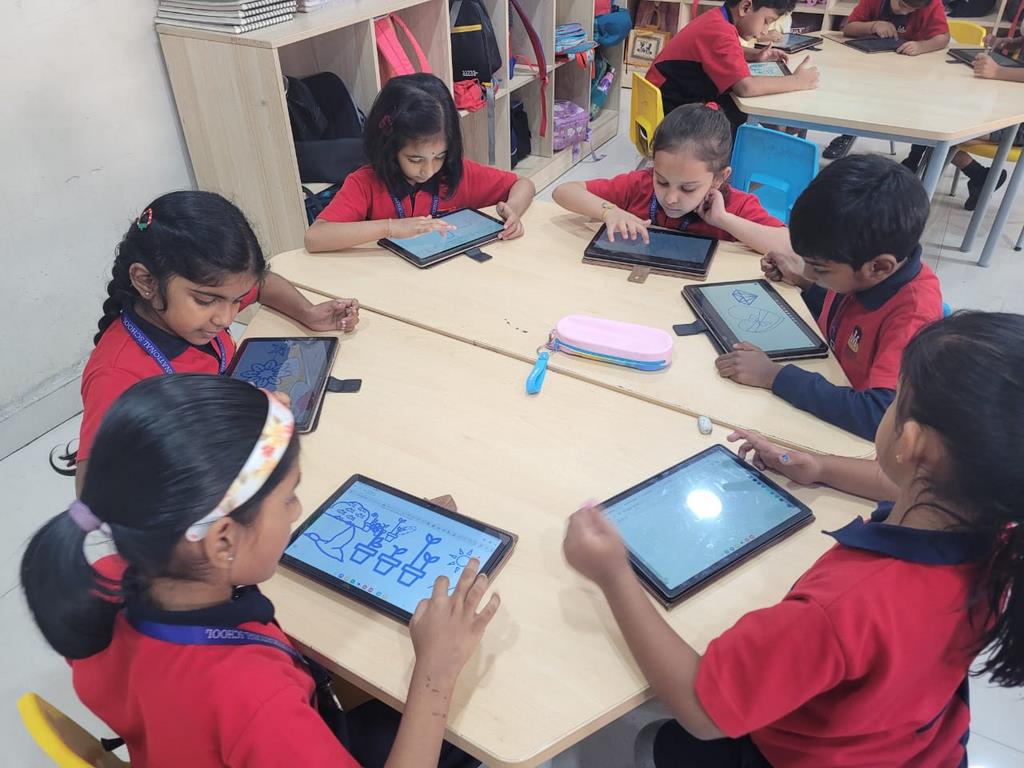
Nurturing Creativity Through Arts
Visual and performing arts are vital for emotional well-being, self-expression, and social growth. They foster creativity, coordination, and teamwork, contributing to holistic development.
- Visual Arts
Activities like drawing, painting, and sculpting develop creativity, problem-solving skills, and emotional balance by offering a therapeutic outlet for feelings.
2. Music
Singing, playing instruments, and rhythm activities enhance memory, focus, and emotional expression. Music promotes teamwork and discipline through group performances.
3. Dance
Dance improves physical coordination, creativity, and confidence while serving as a healthy outlet for stress and energy.
4. Drama
Drama fosters creativity, collaboration, and empathy by encouraging children to step into different characters. It also builds public speaking skills and self-expression.
At Meru, our well-structured co-curricular curriculum is designed to foster creative expression and holistic development among students. Through a diverse range of hobby clubs, artistic pursuits, and skill-based activities, we provide students with the opportunity to explore their interests, unleash their creativity, and develop essential life skills beyond academics.Hobbies | Meru International School
Age-Appropriate Education
- Early Years
Foundational values like kindness, sharing, and honesty can be taught through stories, games, and creative arts like drawing, singing, and dancing. These activities build emotional awareness and creative expression. - Primary
Older children can explore values such as responsibility, fairness, and diversity through group music sessions, dance, art projects, and drama exercises.
At Meru, our M-CLAP Life Skills Curriculum is designed to equip students with essential skills that prepare them for real-world challenges. Read more about it at : meruinternationalschool.com/miyapur/the-meru-advantage/m-clap/#life-skills
Benefits of an Integrated Approach
- Holistic Growth: Integrating values, emotional balance, technology, and arts fosters intellectual, emotional, social, and creative development.
- Enhanced Creativity: Visual and performing arts nurture creativity while values education ensures this creativity is positively channeled.
- Stronger Character: Arts and values education enhance confidence, emotional intelligence, and moral integrity.
- Future Readiness: Technology education prepares children for a digital future, complemented by the empathy and creativity nurtured through arts and values education.
Addressing Challenges
- Balancing Technology with Arts and Values
Technology should complement, not overshadow, arts and values education. For instance, digital tools can enhance creativity through virtual art projects, music composition, or online performances, while supporting moral and emotional development. - Keeping Children Engaged
Interactive methods like group activities, performances, and art exhibitions keep children excited and make learning meaningful and enjoyable.
Conclusion
Integrating values education, emotional intelligence, technology skills, and visual and performing arts from early childhood to Primary lays a strong foundation for overall development. This approach equips children with the skills needed to thrive in an increasingly complex world, fostering creativity, empathy, and responsibility. By developing these abilities early, we prepare children to embrace life’s opportunities and challenges with confidence and resilience.


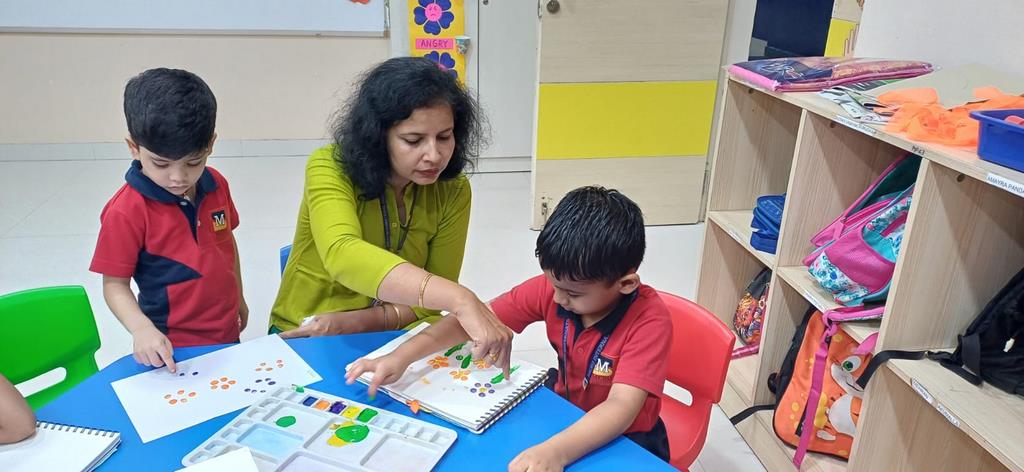
I liked the individual touch you added to your article; it made it easier to relate to.